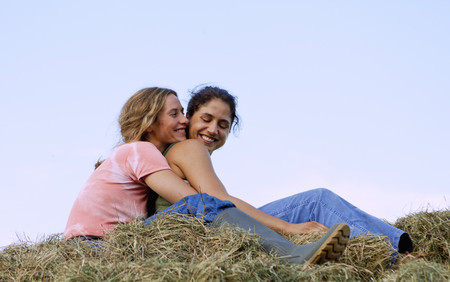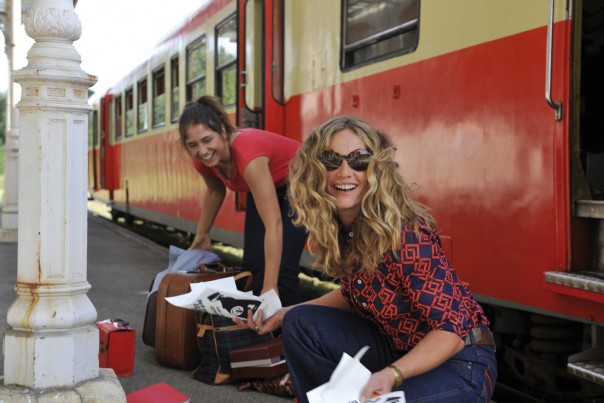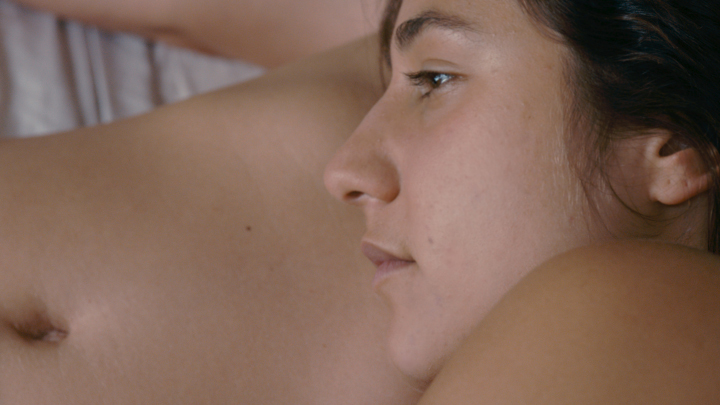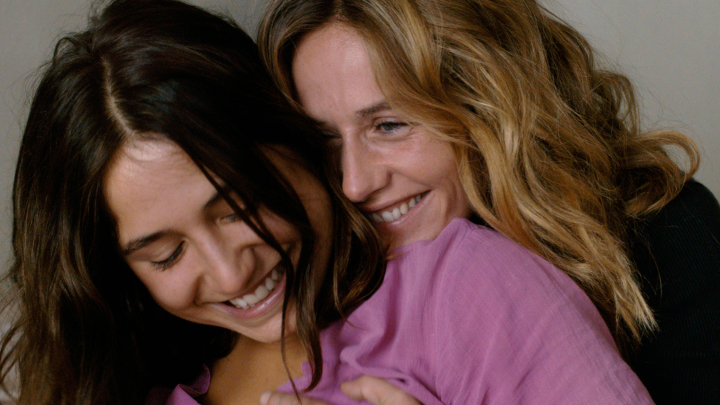 Catherine Corsini's Summertime is a story about the undefinable, unclassifiable nature of love, featuring the unlikely romance between Carole, a Parisian schoolteacher and feminist activist, and Delphine, a young woman who grew up in the rural area of France, the daughter of two Limousin farmers. The film opens in the countryside, introducing us to Delphine's modest lifestyle, one in which the gender roles are strictly defined due to the environment in which they inhabit. While Delphine's father works long hours outside, and Delphine's mother handles all responsibilities on the domestic side, Delphine herself oogles one of the area's other young woman. When the source of Delphine's affection rejects her, suppressing her own lesbian tendencies due to traditonal family values, Delphine decides she needs a change of scenery, leaving the family farm for Paris. Soon after she meets Carole, instantly feeling attracted to her strong personality and outspokenness about the treatment of woman in this world. Carole's characterization is one of the weaker elements of Summertme early on, a character who becomes confused about her sexuality due to Delphine's persistent passion for her. While probably not unintentional, Summertime unwisely exhibits the close-nit relationship between lesbianism and feminism, something that really weakens Carole's characterization early on. It's almost as if the film felt it necessary to add more stakes for Carol, attempting to use her break up with her boyfriend as a symbol of her commitment to Delphine. Carole's ending of her relationship with her boyfriend is given very little focus in Summertime, a decision that weakens her own characterization. The problem is the character is also having a big discovery about her sexual orientation, yet the film never dedicates much time to exploring this moment of self discovery for Carole, a decisions that weakens various thematic threads of the film centered around homosexuality, feminism, and independence. Delphine's characterization is by far the strength of the film, being strong from beginning to end, a character whose journey is the centerpiece of the film. Delphine isn't a character who denies herself the pleasures of her sexual preference, yet she lives her life in hiding, fearful of her traditional mother and father finding out about her homosexuality. In Paris, she is alive due to being free from the gaze of her parents, yet when Delphine's father falls victim to a stroke, she immediately rushes back home to help her mother run the family farm. The back half is where Summertime gains momentum, with Carole herself finding her love for Delphine tested, being forced out of her urban environment and thrown into the polar opposite, rural environment. On the farm is where Delphine's insecurities come bubbling to the surface again, hiding her homosexuality from her parents, fearful of their reaction to her "nontraditional" sexual orientation. The strain of Delphine's festering secret and Carole's uncomfort with this rural lifestyle is where Summertime thrives, putting the couples early idyllic romance to the test in an honest and heartfelt depiction of what it means to fall in love. Through the relationship between these two characters Summertime reveals the importance of being oneself, suggesting that it can be extremely hard due to preconceived notions about homosexuality, but inevitably a necessary step in order to find happiness and love. Leaving the farm behind becomes a symbolic representation of Delphine finding her personal freedom, with perhaps the Summertime's strongest aspect being its ability to capture how hard that can truly be.
0 Comments
Leave a Reply. |
AuthorLove of all things cinema brought me here. Archives
June 2023
|



 RSS Feed
RSS Feed
